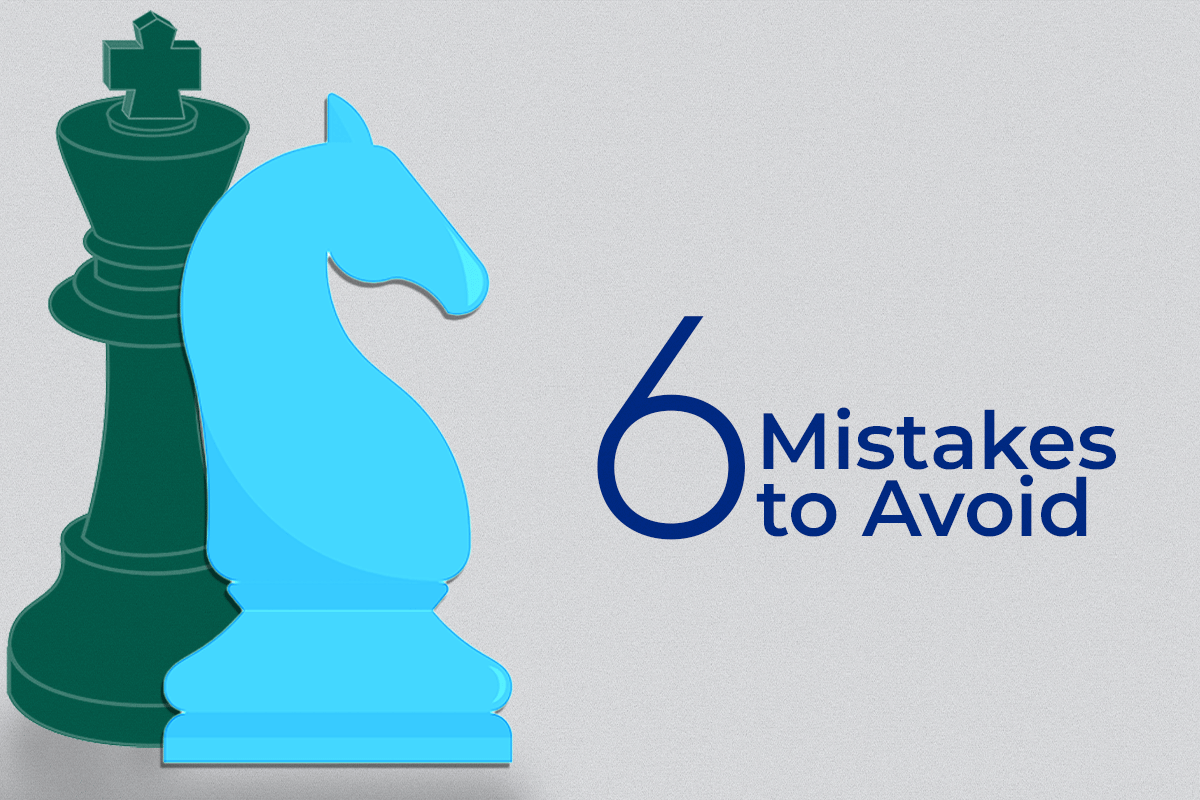Job-Seekers, Here are Six Biggest Job Application Mistakes to Avoid At All Costs
by Tom-Chris Emewulu · Career advice
Mon, 28 May 2018 · 3 minute read
Share

It can be frustrating when you send in your application for a job opening but do not receive a response from the hiring manager. Apart from the fact that the job market is as competitive as ever, the reason you are not hearing back from hiring managers might be some of these limiting job application mistakes I am about to share with you.
One thing many job applicants do not take into serious consideration is that their application is the first point of contact with the company they are applying to -- it is an opportunity to slingshot your copy into the hiring manager’s shortlist. Therefore, you must do everything necessary to grab that opportunity and make the employer go wild over your copy!
From an experience of reviewing numerous applications within the past two years, the following are some of the biggest mistakes people commit while applying for jobs.
Not Following the Application Procedure and Poor Email Etiquette
Here is a rule of thumb you should remember when applying for any job. Every company has a recruitment process that prospective employees are required to follow. Mostly it is usually simple and will be communicated in the application form. You will do excellent service if you follow whatever procedure is required of you.
If the job application is via email, ensure you add a heading to your email. Because emails can contain viruses and irrelevant information, email headings are how busy people decide whether to open them or not.
Also, I think it is generally unprofessional to send an email without a heading. For employers, how you do anything is how you do everything. If you cannot add a subject line to a mail that announces your first contact with the company, how likely is it that you will do any different when you are hired?
Experts have said that a good job application subject line should:
- Be professional,
- Be relevant,
- Contain the job title you are applying for, and
- Be short and straight to the point.
Here's an example of an excellent job application subject line: Administrative Assistant Job at XYZ company - Edith S. Boakye. It tells the recruiter what you're applying for, and gives them your full name for easy reference when they search your name in their email.
Furthermore, your email address should reflect the professionalism you seek to portray. Emails such as sexybaby123@gmail.com are a turn-off for many hiring managers. A better and more professional email address would be something like "edith.boakye@gmail.com." Some recruiters recommend that you set up a separate email account for job-related purposes.
Finally, ensure to keep your email content as brief as possible. Errors in grammar and spelling will be the first thing that will catch the employer’s attention. So, do yourself a favor and spell-check it before clicking send. When in doubt, use Grammarly to spellcheck your work.

Sending a Poorly Written Resume
One major deal breaker in a job application process happens over the resume. Regardless of size or industry, studies suggest that many recruiters, hiring managers, and human resource professionals are still utilizing resumes as the basis for great first impressions in a recruitment process. One study of over 300 hiring managers reveals that the following are the biggest resume deal breakers candidates should avoid:
- Spelling and/or grammatical errors
- Incorrect or missing contact information
- Unprofessional email address
- Outdated or irrelevant information (hobbies, age, marital status)
- Failure to demonstrate and quantify results
- Annoying buzzwords and/or obvious keyword stuffing
- Too generalized/not customized to match the job listing
- Repetitive words or phrases used in multiple job descriptions
- Including a headshot (the photo may be distracting or unprofessional)
- Format and/or design is too elaborate (a one-page resume is ideal for most resumes)
Not Adding a Good Cover Letter
Apart from your resume, another vital "make or break" tool in your job application arsenal is a cover letter. If it is true that a resume is like an appetizer to a hiring manager, then the cover letter is like the main ditch for determining if the candidate will proceed to the next stage of the recruitment process (in some instances, the reverse may be the case).
Therefore, ensure to put some thought into crafting this real estate. Be diligent in your research of the company; understand whom to address your copy to and skillfully highlight the keywords that are relevant to the job while demonstrating that your personality fits the organization’s culture - that is if it actually does.
Lastly, keep in mind that with an increasing number of software tools being utilized to navigate through a stockpile of applications, the cover letter is usually the first thing the hiring manager will see, especially as the pile minimizes to ideal candidates.
Not Knowing the Company You’re Applying to
You’ve read the job application and you've made your resume waterproof. Now, you just want to quickly send in your resume so it can be the first thing the recruiter will see. While it can be useful to send your resume as early as possible, you miss a great opportunity if you do not research the company you’re applying to work for.
Researching the company will help you tailor your cover letter as explained above. It also helps you connect with people who already work there and gives you the chance to determine if the company is headed in the direction you want to go.
I can't tell you how many times I've sat down with a candidate only to realize they don't know anything about what we do. As any recruiter will tell you, there is nothing as frustrating as calling a candidate for an interview only to find out that he or she does not know anything about the company’s business.

Not Keeping a Good Social Media Presence
Here’s another secret for job seekers: most hiring managers will check out a candidate's social media presence before making a job offer. In this digital age, the first thing most recruiters do before contacting you is to Google your name (your LinkedIn profile is usually their first destination), and if you have not kept a good social media presence, you will be at a loss.
For a technical role as a web or software developer, I will want to see some repositories on Github or a portfolio of websites you've built.
No company will hire someone who is perceived as a reputation hazard. Hence, endeavor to keep your profiles as professional as you can get and watch your comments and posts. It is easy to get entangled in a "flame of wars" that means nothing to you but might matter very much to your prospective employer. More so, be careful that you don’t vent your frustrations about brands or people online -- you never know where your next job may be coming from.
Lying in Your Application
One major reason a resume is not such an objective source of information for a recruitment decision is that many applicants lie on their resumes. Consequently, employers are devising numerous strategies to catch those who tell a fib through various online and backdoor reference checks.
If a recruiter determines that a candidate lied in his or her application, that will be the end of that candidate's chance of ever getting a job in that company.
Another reason it is inadvisable to lie in your application is that even if you don't get caught in the recruitment process, it will eventually come up at some point. You'll constantly have a target on your back. And when your lie comes back to bite you in the ass, you might not get away with it. Expert recruiters recommend that “by making friends with employees on networking sites like LinkedIn, job seekers can demonstrate how their personalities and aptitude are a match for the employer and this makes not having an exact match inexperience less of an issue.”
Twitter can also be a good place to network with prospective employers. Use these tips to network like a pro.
Conclusion
The job search process can be extremely overwhelming and tedious. But, when you finally find that opening that matches your qualifications or can be a great stepping stone to your career goals, you want to ensure that you put in the effort by making your application irresistible to the hiring manager.
In the words of Vince Lombardi, the price of success is hard work, dedication to the job at hand, and the determination that whether we win or lose, we have applied the best of ourselves to the task at hand.
If you still struggle to hear back from recruiters after a job application, perhaps it's time to skill up. Learn new digital skills and become part of the global workforce.

